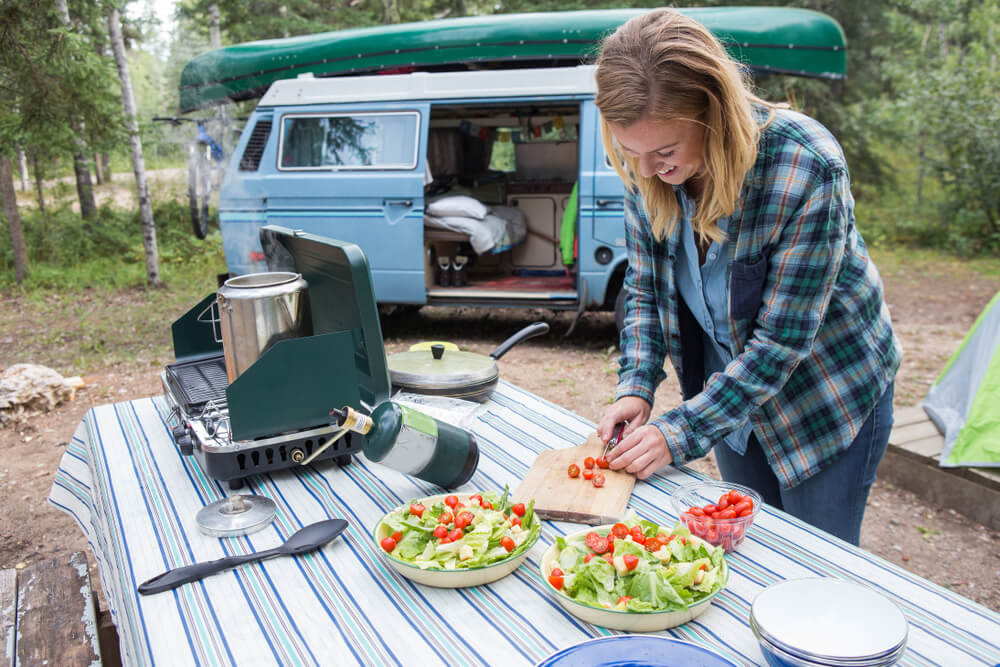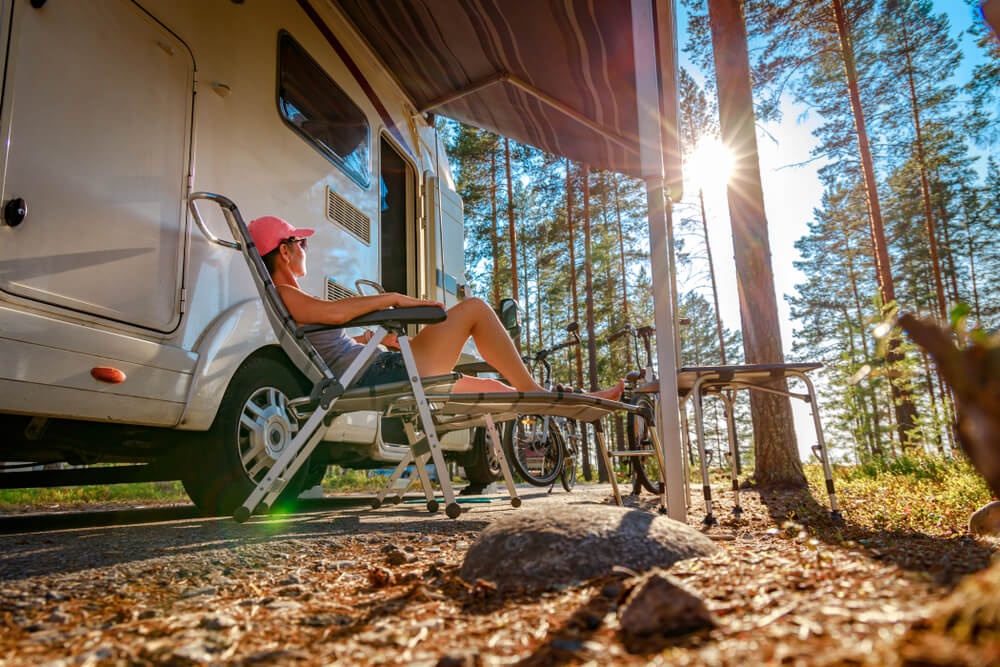To many, the off-grid lifestyle is romantic. It is not thought to be an easy life by any means, but certainly a free one. A detachment from the dreary realities of mainstream society, and a return to the roots of nature. Off-grid living is not thought of as unnatural. Quite the opposite, it is an attempt to reclaim a part of life that has been the norm for millennia.
But there is a downside that collides with modern life, and that is wanderlust. Humans have always been driven by an urge to explore. With modern day technology, it is now possible to travel thousands of miles in a matter of hours.
Unfortunately, living off-grid is a full-time commitment and doesn’t leave much room for exploration — but what if there was a middle ground between the two?
Freedom and a bit more: the off-grid “spectrum”
The term “off-grid” has different meanings to different people. At the most fundamental level, most people understand it to literally mean a life free from the electrical “grid”. This is where the term comes from and is the most popular definition.
Other definitions are more extreme, descending from:
- Independence from all public utilities, not just electric — including water
- Independence from all types of public infrastructure, including roads
- A complete detachment from most aspects of civilisation, including even healthcare and food shops
Obviously, an off-grid lifestyle in a motorhome is only possible for the first two definitions. In any case, it is unlikely many people are hardcore enough to opt for a lifestyle more difficult than shunning public water.
An off-grid motorhome — travelling and settling down
Let us start with the disadvantages. With a motorhome, your idyllic life will be rudely interrupted as it collides with reality. These collisions normally manifest in the form of road insurance, taxes, and other regulations and legislation.
Then there is the issue of settling down. Travelling around is great, but everybody wants to settle somewhere for at least a short while. And especially if the desire is to source a bit of water or grow some food.
But in the United States and the United Kingdom, you won’t be able to settle anywhere for long — not without a permit or planning permission. Mostly, you will be able to perch around for a month before being asked to leave. Although this is fine for water sourcing, it isn’t optimal for much food production.
There are ways to get around this, however:
- Holiday or residential motorhome/caravan sites. Not a lot are open all year round, but some are. And you can usually settle for quite a long time. For months, even. In most cases you will be required to leave the premises for a few days, every three months or so. But that is hardly a problem, and it can even give you an excuse to go exploring.
- ‘Ancillary accommodation’. This is a technical way of saying “you can stay with a friend”. If someone gives you permission to park on their field, land, or driveway, you can stay for as long as you want to.
- Actually have a permanent address. Even if you hardly spend time there, a “real” address will be so convenient, not least because it will make insurance and other life-admin duties that much easier. Like ancillary accommodation, this can be a friend or family member’s abode.
That’s about it. Without some form of permanent or semi-permanent address, insurance companies won’t want to touch you. And obviously, that makes off-grid living from a motorhome rather difficult.
Staying off the grid
It might come as a surprise to learn that power self-sufficiency is the easiest and most straightforward part of off-grid motorhome living (ignoring the fact that you will need to visit a petrol station for fuel). Four indispensable items are:
- Solar panels — There’s a giant ball of fusion in the sky that provides the Earth with unlimited, clean, renewable energy. So solar panels should be the first port-of-call for anyone wanting to live off-grid. The best ones are portable, can be easily stored, and angled to follow the sun. Such as the briefcase and mounted-roof models. A 100-watt panel wire into two 110-amp panels should generate a reasonable amount of power with only a few modest sacrifices.
- Gas — You certainly won’t be able to harvest gas from the Earth, but a refillable gas system paired with a backup cylinder is important to keep your food cool (refrigerated) and yourself warm in the winter. Thoroughly research a system before buying, as some are more affordable and better than others. Most systems supply gas readily for about three weeks before needing replacing.
- A backup generator — Not ideal, but they are only intended as backups, after all. They are noisy, smelly, but will more than likely come in handy on grey days as the solar panel struggles to absorb the sun’s energy. A 500-watt model, with a good manufacturer should do nicely, and last a decade if well serviced.
- A car engine alternator — Every car and motorhome has one, and these ingenious designs will help to power your vehicle by plugging into another car engine if all else fails.
Power generation is not exactly rocket science, but it can get expensive over time.

Searching for water
Water is, sad to say, near impossible to source independently off the grid. It is difficult even in a fixed abode, never mind a motorhome. This is because most lakes and streams and rivers are polluted by actual pollution, microbes or animal excrement. Almost every off-grid enthusiast has to turn to the public utilities at least some of the time.
Digging a well is time-consuming and a gamble, even in an area with a high water table — not to mention you will need expensive equipment, a lot of labour (and a lot of government permission) before doing so. So the answer to this section — is it possible to source water independently while living in a motorhome? — is a quick: “no”.
Growing food
Sourcing water may be near impossible, but food is a different story. With careful planning and management, growing food certainly is doable — but it becomes problematic from a motorhome, as you cannot always stick around in one place for too long. A direct answer is, you can definitely achieve food self-sufficiency “sometimes” and intermittently.
Thanks to raised-bed technology, it is possible to grow a decent yield of vegetables for two people within a square of just 24-inches across. In addition to a raised-bed, portable plant pots and containers can also be used for additional harvests. But obviously there is a trade-off between living off the land and travelling about. You won’t be able to be food self-sufficient, probably even settled down, and especially on the road. Hunting, foraging, and growing vegetables and fruits in pots are incredibly labour intensive, often come with more problems than they are worth, and will at best provide a few intermittent snacks.
So sometimes it will be possible to grow, source, and provide food independently of the grid — but this will almost always be fleeting. Treat yields like this for what they are: immensely satisfying and self-accomplishing. But don’t expect to shun the supermarkets just yet.
Conclusion
Taken at its most simplistic definition — that of just living independently from the power grid — the off-grid lifestyle is not only possible from a motorhome, it’s actually not too difficult. But beyond that it is virtually impossible. You might be able to achieve self-sufficiency for short durations, some of the time. But that’s about it.
If you still hold dear dreams of travelling about in a motorhome and living out of one, then you might want to consider full-time touring, which has all the benefits a motorhome has to offer, with none of the inconveniences of off-grid living. But alas, that lifestyle will lack meaning and eventually burn out.
This Author
Neil Wright is a writer and researcher. He has written extensively about motorhome and off-grid livelihoods on his website.

